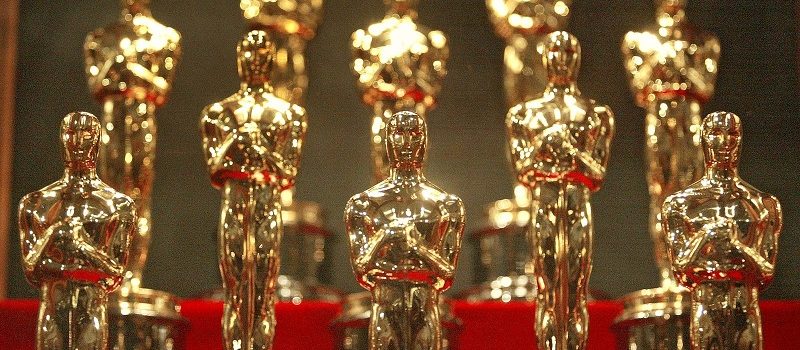Now that those highly anticipated Academy Awards’ nominations have been revealed, here comes the fun part. For over 30 years this writer has predicted the winners prior to the broadcast on ABC. Although the world around us has changed revolutionarily on a multitude of layers, something remains constant and that is that Joel D. Amos byline will have a yearly “who’s going to win” prediction piece that if I may say, has helped countless folks get a leg up on their annual Oscar pool.
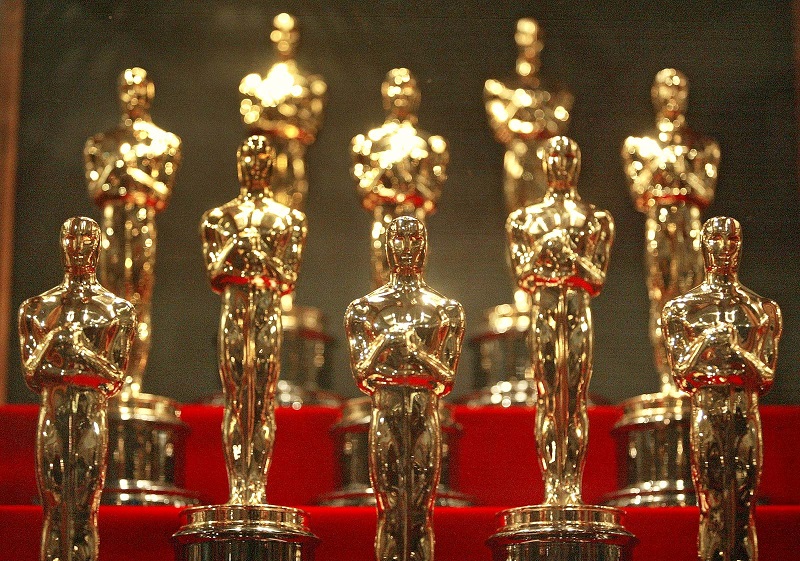
Films tend to reflect society as a whole. These pieces of art are not crafted in a vacuum. What is so extraordinary about 2020 is that the Coronavirus that took over our lives by St. Patrick’s Day in 2020. Thanks to the Academy for recognizing the altered landscape, so the “deadline” and focus for films to be famously considered was stretched until February 28, 2021. Therefore, films such as the stunning The Father with Anthony Hopkins and Olivia Coleman scored its six nods even though it had seen the light of day at the conclusion of the second month of the calendar year.
What else tends to occur, most years, is that the vat of films that earn those coveted Academy Award nominations tend to reflect the year of their release, socially, politically, narratively, and just basically story-wise.
In the movie world, the year that was sits among a tiny and exclusive select group. The year 2020/21 has been the most simultaneously newsworthy and tragic, yes. But it also was a year where more folks experienced the nominated films while stuck at home on lockdown or quarantine than ever before.
The Movie Mensch’s column, Oscar Watch, brings you our second edition of this season where we breakdown the “big” nine—Best Director, Best Original Screenplay, Best Adapted Screenplay, Best Director, Best Actress, Best Supporting Actress, Best Actor, Best Supporting Actor, and of course—Best Picture.
Now, Oscar Watch’s in-demand, complete, every single category “who will win” prediction piece is coming. The awards are not set to take place until April 25—the latest the little bald guy has been handed out in the television era.
With my latest Oscar Watch, those aforementioned “main” categories will get a barometer reading as we gaze at the calendar and conclude that a lot could change on this landscape as we are one day shy of a month away from “Hollywood’s Biggest Night.”
So, what is ear-to-the-ground chit chat for these categories in Tinsel Town at this present moment? Let’s dive in!
Best Actress
- Viola Davis – Ma Rainey’s Black Bottom
- Andra Day – The United States vs. Billie Holliday
- Vanessa Kirby – Pieces of a Woman
- Frances McDormand – Nomadland
- Carey Mulligan – Promising Young Woman
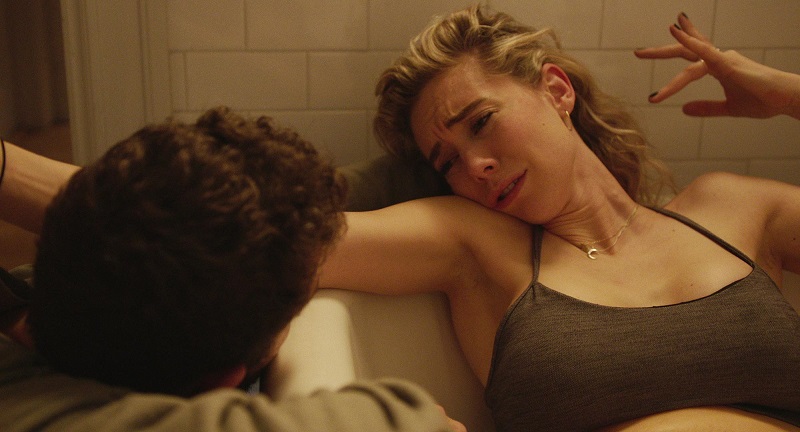
What stands out: This is one competitive year for lead actresses. On straight merit, the Oscar would probably go to McDormand for her no-nonsense turn as Fern, a woman who lives in her van and travels across the western United States as part of what turns out is its own little community of folks who never say, “goodbye.” They utter, “We’ll see you down the road.” Given the fact that she recently won this particular category in 2017 for Three Billboards Outside Ebbing, Missouri and that was her second Oscar, The Movie Mensch—at this particular moment in time—believe that the most likely winner will be Mulligan for her searing turn in Promising Young Woman. I mean, is the Academy going to give McDormand more Best Actress Oscars than Meryl Streep? I’m thinking, “no.”
As for Mulligan, she deserves it. That performance is fire incarnate. What she does with writer-director Emerald Fennell’s Cassandra is a revelation and with #MeToo still at the forefront of everyone’s minds, the subject matter could (sadly) not be more timely.
But there is something that bothers me here while the calendar still reads March.
What Kirby achieved in Pieces of a Woman is not only extraordinary but also a talent requirement that exists on an entirely different plane. The entire movie is the British actress, whereas all the supporting cast (including Shia LaBeouf as her husband and Ellen Burstyn as her mother) orbit her and everything she does, says, lives, and breathes. There are hurricanes of performances. Then there is what Kirby in Pieces of a Woman achieves. Typhoon Vanessa could very well make landfall on the Oscar stage on April 25.
Now, some of you are probably wondering about the great Andra Day and her commanding turn as Billie Holiday in The United States vs. Billie Holiday. The thing is the film fails her. That Golden Globe win got her this nomination. It won’t win it for the talent. She is astounding despite the script and narrative choices made on that biopic. When it comes to Davis, she also recently won (for Fences) suspect the Academy passionately believes that she will be back in this fray.
Best Actor
- Riz Ahmed – Sound of Metal
- Chadwick Boseman – Ma Rainey’s Black Bottom
- Anthony Hopkins – The Father
- Gary Oldman – Mank
- Steven Yeun – Minari
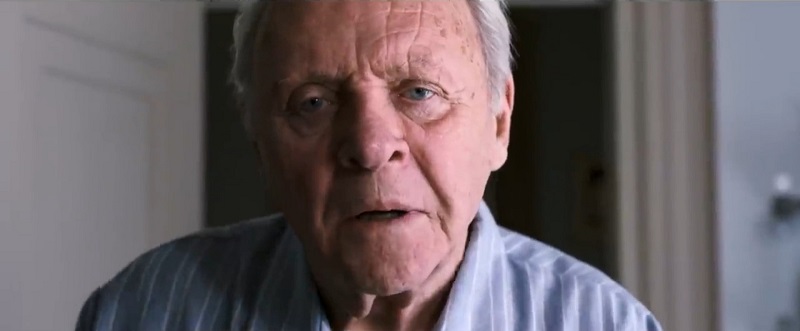
What stands out: When it comes to the traditionally fiercely competitive Best Actor award, there seems to be a momentum thing that is unshakable. In that vein, the Best Actor Oscar will go to Boseman for Ma Rainey’s Black Bottom. It’s posthumous and will produce an incredibly dear and devoted speech by his widow, Simone Ledward Boseman.
Several things occurred in 2020/2021. You’d experience a film and the first thing on the mind is “that guy has to win Best Actor.” It happened with Ahmed in Sound of Metal. What he achieves in that film is jaw dropping. It’s not just the loss of his hearing in writer-director Darius Marder’s film that is captured so respectfully, but there are also layers of anger, denial and every one of those stages of grief. He’s a heavy metal band drummer in the cusp of enormous success. Hearing is an enormous aspect for a drummer. He’s also in recovery. Lucky for him, he lands at a facility run by Joe (the also nominated Paul Raci), which specializes in folks losing their hearing and how it can be the most compelling of triggers for a return to using. The performance is sublime and again, the entire movie is on his shoulders. It doesn’t work without the powerful performance by an actor we are likely to see in this category once again. Therefore, for this year, he’s out.
Upon witnessing Hopkins in The Father, my heart ached for a month. I saw it as the AFI Film Fest back in September and I am still nursing those emotional wounds. What the octogenarian gifts his audience is so raw and real that some serious inward thinking will accompany those closing credits. Hopkins breaks hearts in a million pieces.
I was certain he would win, after all, it is beyond a masterclass in the fine art of acting. That final scene… can’t even write the words without tears.
Then, Ma Rainey’s Black Bottom premiered and there are a few scenes with Boseman where he delivers some impassioned monologues. When the late actor concludes these moments, one is left with a million feelings, including utter sadness at a talent gone too soon. Another has a headline that reads, “just give him the Oscar. Everyone else is jockeying for second place.” The thing about this category and this particular year is normally someone like Boseman can count on that nod, but it is a real horse race to determine who will actually emerge victorious. “He’s young, he’ll have dozens of other opportunities to win Oscar.” The thing is, tragically, he won’t.
Best Supporting Actor
- Sacha Baron Cohen – The Trial of the Chicago 7
- Daniel Kaluuya – Judas and the Black Messiah
- Leslie Odom Jr. – One Night in Miami
- Paul Raci – Sound of Metal
- LaKeith Stanfield – Judas and the Black Messiah
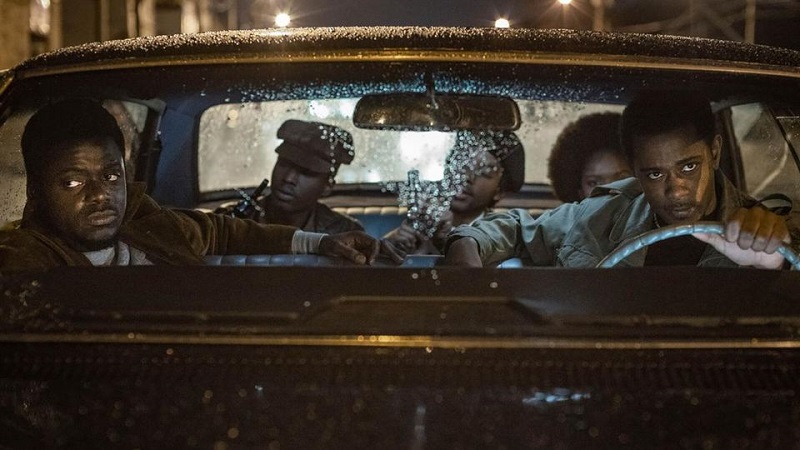
What stands out: The Best Supporting Actor race is a fascinating one for a multitude of reasons. One could argue that several of them are lead actor material. After all, in Judas and the Black Messiah two of the actors nominated for Best Supporting Actor—Kaluuya and Stanfield —are the titular characters. The studio behind the film decided their film’s stars’ had the best opportunity for an Oscar nomination if they were presented as supporting players. Odom Jr. is definitely a supporting character. He famously portrays singer Sam Cooke in One Night in Miami. But he is an equal part of an ensemble with the actors tapped to portray the other revolutionaries that gathered that evening in Miami to celebrate one of their own’s ascension to the top of their profession— Cassius Clay (who would soon change his name to Muhammad Ali). Also, there to celebrate is Aldis Hodge’s footballer Jim Brown and Kingsley Ben-Adir’s Malcolm X.
It’s extremely difficult to call out a specific actor in an equally distributed narrative weight-carrying endeavor as is the case in director Regina King’s One Night in Miami. There was just something truly magical about what the Hamilton star achieved in his humanizing the mesmerizing Cooke. The same kind of argument could be made for The Trial of the Chicago 7. Now, Cohen was singled out for a nomination for his turn as the pot-stirrer that was Abbie Hoffman. Innate to the levels of star-power in Aaron Sorkin’s true tale of the 1968 Democratic National Convention and the bloody protests that erupted throughout. Everyone sitting at that defendant’s table was considered a “Supporting” thespian to the rest of the cast. To spotlight Cohen is an interesting choice. He may have made the most noise, caused the most laughs, and had some of the most choice monologues in the entire affair. Yet, one could argue that previous Oscar winner Eddie Redmayne’s (for The Theory of Everything) take on future politician Tom Hayden (and Mr. Jane Fonda) was the highlight in this performance Olympics.
Although there is little chance that he will emerge victoriously, the inclusion of Raci for Sound of Metal is a gift from the Golden Trophy G-ds. His talent exhibition is equal parts touching, empathetic, lay down the law serious and he practically steals the show as the man who runs the residential clinic for newly deaf or longtime deaf souls who are battling the crippling demands of addiction.
Kaluuya won the Golden Globe in this category and I see nothing standing in the way of him continuing his winning streak on the big night. What he dealt from his deck of thespian cards was nothing short of a movie miracle. But, more on that when we actually predict the winners in a few weeks.
Best Supporting Actress
- Maria Bakalova – Borat Subsequent Moviefilm
- Glenn Close – Hillbilly Elegy
- Olivia Colman – The Father
- Amanda Seyfried – Mank
- Yuh-Jung Young – Minari
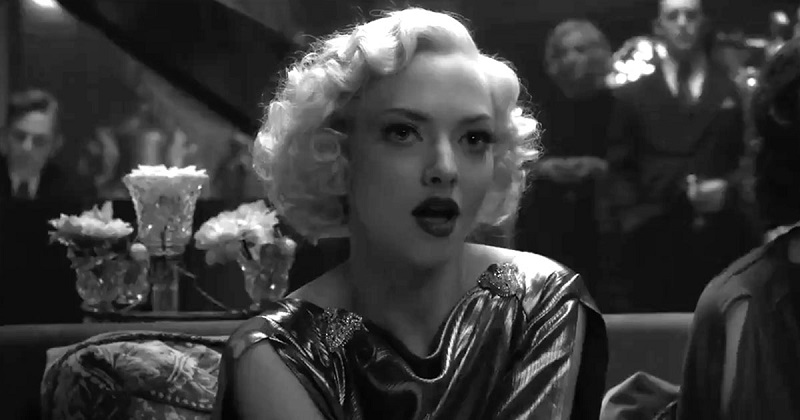
What stands out: Before a single soul had seen Mank, the buzz for Seyfried for Best Supporting Actress for her turn as Marion Davies. The Mamma Mia star has been producing solid work for decades and it’s nice to see that that hype resulted in a nod. It’s got to be the worst (WPP) for so many who have been buzzed into thinking that they will receive a nomination, only to awake at that awfully early 5 a.m. and discover that this year—it is just not in the cards. Seyfried’s insight into the world of William Randolph Hearst (she was his “companion” for many years) would be the impetus that would get Oldman’s Mankiewicz to start typing the script for the film that many still consider the best of all-time.
What else stands out is that an actress from a Borat movie scored a nod! Now, she deserved it as the mix of improv and scripted moments had the Bulgarian actress showcasing major innate talent that deserved to be saluted. Now, will she win? That’s another column, but she does belong here alongside Seyfried, previous winner Colman (from last year’s The Favourite), Close’s Hillbilly grandmother, whose influence over our lead and author of this story, J.D. Vance, is the stuff of legend. Close now has been nominated eight times with zero wins. Sadly, we don’t think 2021 will be the year that changes that big fat zero to a one. That is because of the hurricane of happiness and much-needed life-affirmation that accompanied Young’s performance in Minari. Soonja is the most fascinating of characters and when it comes to the narrative of writer-director Lee Isaac Chung’s masterpiece, one can thank grandma for injecting life and levity into a story that could have been otherwise quite serious.
Best Director
- Thomas Vinterberg – Another Round
- David Fincher – Mank
- Lee Isaac Chung – Minari
- Chloe Zhao – Nomadland
- Emerald Fennell – Promising Young Woman
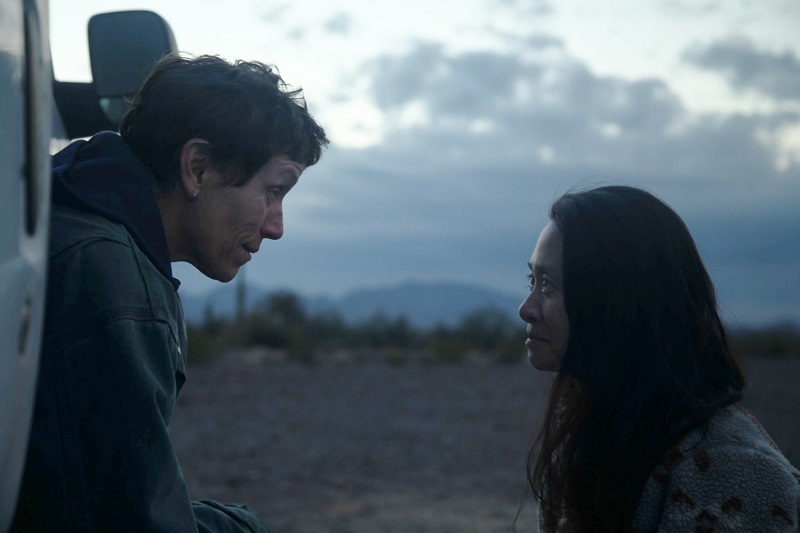
What stands out: In a year that was filled with fantastic films helmed by females, the fact that 40-percent of the nominees, including the likely winner, is a woman serves as a huge step in the realm of progress. This category came “this close” to nominating Sorkin as Best Director for his The Trial of the Chicago 7—after all, he earned a Golden Globe, a Broadcast Film Critics Association Awards, and a Director’s Guild (DGA) nod for his work helming that all-star cast on that true tale. The film is powerful, for that there is no question. But this is only the Oscar and Emmy winning writer’s second film behind the camera (after Molly’s Game) and if we’re being honest, the Netflix film was choppy and sometimes downright awkward.
Since Mank was announced as a film entity, it was going to be an Oscar darling. Its 10 nominations lead the pack and that is hardly a surprise. Fincher’s work has long been envelope-pushing—from The Social Network to Fight Club—so the fact that he tackled a true Hollywood tale practically guaranteed him a spot on this coveted list. Once we saw Mank, of course, we now know that it was totally and wholeheartedly deserved.
The surprise in this category (some may argue he took Sorkin’s spot) is Vinterberg for Another Round starring Mads Mikkelsen. Meanwhile, Chung crafted an autobiographical Minari that was as beautiful and lush visually as it was emotively powerful. What Fennell achieved with Promising Young Woman is searing. Known previously for her acting chops (she nailed it as Camilla Parker Bowles in The Crown. It’s hard to believe that she is making her long-form narrative debut with Woman. There are directorial choices made throughout the Mulligan hurricane that are products and directing styles of helmers with much more experience than Fennell. Promising Young Woman has a tone that tethers to the viewer in a manner that the film is inescapable to shake, long after the credits have rolled. Yes, the acting was divine by the electric ensemble. But in a medium known as a director’s medium, Fennell reminds us of that fact with what she delivered to the world as a Promising Young Woman.
Again, predictions are coming. But our likely winner will be Zhao for Nomadland. She took what could have been the simplest of stories and added layers upon layers to the tale of so-called nomads who wander the American highways and byways, living out of their van—by choice or necessity. As a once a century pandemic wiped out savings and livelihoods, Zhao’s film is timely as well—something Oscar treasures. If a director can make a statement with their work that speaks to the larger problems of society effectively, efficiently and in an entertaining manner, well then… looks like we may have a winner.
Best Original Screenplay
- Will Berson & Shaka King– Judas and the Black Messiah
- Lee Isaac Chung – Minari
- Emerald Fennell– Promising Young Woman
- Darius Marder & Abraham Marder – Sound of Metal
- Aaron Sorkin– The Trial of the Chicago 7
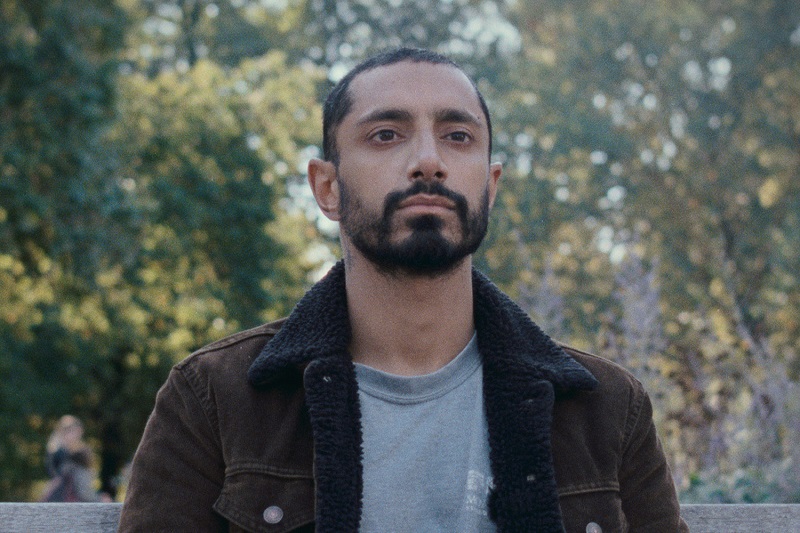
What stands out: Variety… what an incredibly diverse group of nominees for Best Original Screenplay. We’ve got one regular—and the previous winner—in Sorkin for The Trial of the Chicago 7. The Fab Four of remaining screenwriters has delivered rich stories, ripe with divine dialogue and subject matters that run the gamut. Audiences are always clamoring that they want more originality from Hollywood instead of sequels, reboots, remakes, and the like. This quintet of Oscar-nominated scripts are a varied bunch—from a true tale about the enigmatic leader of the Black Panther Party in Illinois, to a tale of a heavy metal drummer who awakes one day to discover he can no longer hear, and a story of a woman seeking to elicit revenge on an entire gender since society previously stood there and did nothing while women were being sexually assaulted. This will (eventually) be a tough one to call. Look out for our predictions for Oscar glory when the annual Oscar Watch predicts the winners bows on April 19.
Best Adapted Screenplay
- Sacha Baron Cohen, Anthony Hines, Dan Swimer, Peter Baynham, Erica Rivinoja, Dan Mazer, Jena Friedman, and Lee Kern – Borat Subsequent Moviefilm
- Christopher Hampton and Florian Zeller – The Father
- Chloe Zhao – Nomadland
- Kemp Powers – One Night in Miami
- Ramin Bahrani –The White Tiger

What stands out: Not one, but two surprises grab the headlines for Best Adapted Screenplay. First, back in 2006, you have just exited a comedy that practically made you pee from laughing so hard. Then, all your friends learn about this little movie that could in Borat: Cultural Learnings of America for Make Benefit Glorious Nation of Kazakhstan. Would you have believed it if you were then informed that 15 years later, audiences would get a “heartwarming” sequel featuring NYC post 9/11 hero Rudy Giuliani “getting in trouble” for sticking his hands down his pants in the presence of an underage girl there to “interview” him for a foreign media outlet? I would have laughed, thought you were crazy and moved on. Don’t laugh. Borat Subsequent Moviefilm has earned two Academy Award nominations for the 2021 edition. That young “reporter,” of course, is played by current nominee Bakalova. She may have scored that nomination for that scene alone!
Second, Netflix scored a shocker by earning a nomination for Best Adapted Screenplay for the New York City-based, India-culture-centric The White Tiger. Priyanka Chopra Jonas served as one of the executive producers for this drama as well as one of the stars of the story about an ambitious Indian driver who employs his sense of humor and cleverness to rise above his station in life and perhaps, even rise to the top.
In the end, either One Night in Miami or The Father will emerge victoriously. Both are adaptations of stage plays and both cannot escape that aesthetic but achieve it in gloriously different means. The Oscars have a tough road ahead of them, voting-wise. Then again, that’s the job!
Best Picture
- The Father
- Judas and the Black Messiah
- Mank
- Minari
- Nomadland
- Promising Young Woman
- Sound of Metal
- The Trial of the Chicago 7
Mank leads with 10 nominations, so the theory that the picture with the most nods wins would point to a Mank victory. Not so fast! The favorite as of right now is Nomadland, it is a film that reflects our times. With a pandemic sweeping the world, how many are living in their cars and this is a film that celebrates that way of life–for lack of a better phrase. But, we could see Minari sneaking in there, or Promising Young Woman, or even Judas and the Black Messiah. The latter winning would reflect a year that saw Black Lives Matter establish itself as a force to be reckoned with, and that would be a very good thing. The same sentiment with Promising Young Woman in this era of #MeToo. I won’t be predicting right now, once again, stay tuned for our full-on prediction piece on April 19, but let’s just say it could be any film on that list as of this moment in time in my opinion.

